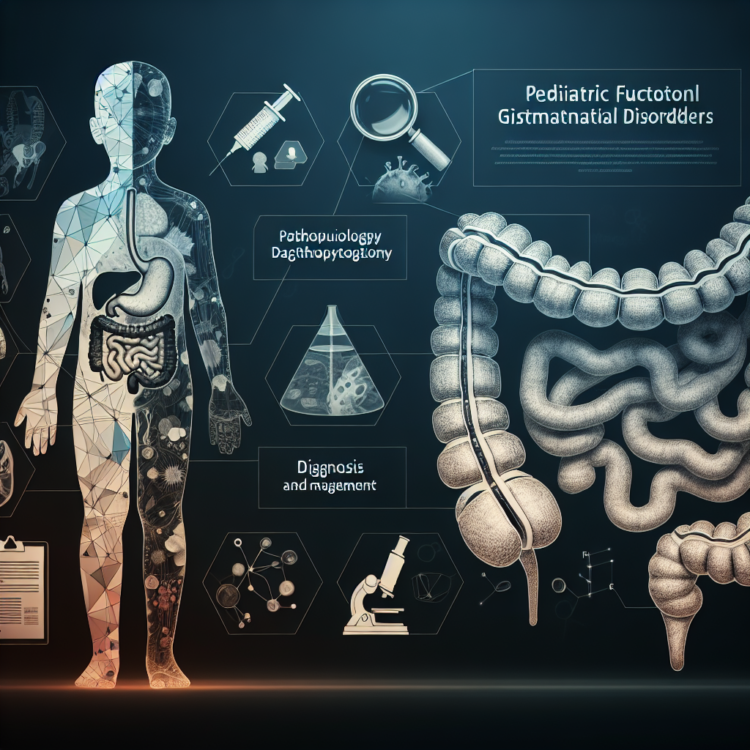Functional Gastrointestinal Disorders (FGIDs), also known as disorders of gut-brain interaction, encompass a wide range of conditions that cannot be attributed to structural, biochemical, or organic abnormalities. These disorders vary significantly from infancy to adulthood, with distinct manifestations in neonates/toddlers and children/adolescents. The ROME criteria, updated periodically, currently in use is ROME IV, which facilitates early and accurate diagnosis of FGIDs. Despite their prevalence, pediatric FGIDs pose diagnostic and therapeutic challenges due to children’s inability to articulate symptoms and the influence of developmental factors. These disorders often persist into adulthood, contributing to significant morbidity, absenteeism, healthcare expenditure, and reduced quality of life.
Functional Gastrointestinal Disorders (FGIDs), also known as disorders of gut-brain interaction, encompass a wide range of conditions that cannot be attributed to structural, biochemical, or organic abnormalities. These disorders vary significantly from infancy to adulthood, with distinct manifestations in neonates/toddlers and children/adolescents. The ROME criteria, updated periodically, currently in use is ROME IV, which facilitates early and accurate diagnosis of FGIDs. Despite their prevalence, pediatric FGIDs pose diagnostic and therapeutic challenges due to children’s inability to articulate symptoms and the influence of developmental factors. These disorders often persist into adulthood, contributing to significant morbidity, absenteeism, healthcare expenditure, and reduced quality of life.
Pathophysiology
The exact pathophysiology of pediatric FGIDs remains elusive, though several factors have been implicated. Genetic predisposition, psychosocial stressors, gut dysbiosis, visceral hypersensitivity, and neuroimmune interactions are among the proposed mechanisms. The complex interplay between these factors leads to altered gut-brain communication, resulting in the manifestation of FGIDs.
Diagnosis
Diagnosing pediatric FGIDs can be challenging, often requiring a detailed history and thorough clinical examination. The ROME IV criteria, which are predominantly symptom-based, facilitate earlier diagnosis by excluding organic causes and minimizing unnecessary investigations. Physicians should be vigilant for red flag signs such as declining weight and height, delayed puberty, painful swallowing, persistent vomiting, bleeding, localized pain, fever, arthritis, perianal disease, and a family history of inflammatory bowel disease or celiac disease. Fecal calprotectin and celiac markers are cost-effective investigations for children with irritable bowel syndrome (IBS)-like symptoms. Early diagnosis, particularly during the first visit, significantly improves recovery outcomes.
Neonate/Toddler FGIDs
- Infant Regurgitation: Involuntary movement of gastric contents occurs in 41-67% of infants between three weeks and 12 months, without retching, failure to thrive, apnea, or feeding difficulties.
- Infant Rumination Syndrome: Rare, affecting 1.9% of infants, involves effortless regurgitation of food, chewed and re-swallowed, accompanied by abdominal muscle contractions.
- Cyclic Vomiting Syndrome: Characterized by repetitive episodes of vomiting lasting hours to days, with episodes separated by weeks to months. It affects 3.4% of infants and children, with onset before two years warranting further investigation.
- Infant Colic: Irritability, fussing, and crying without obvious cause, affecting 5-19% of infants under five months.
- Functional Diarrhea: Painless, recurrent passage of four or more well-formed stools for at least four weeks in 6-60-month-old infants, affecting 6-7% of infants.
- Infant Dyschezia: Involves crying and straining before passing soft stools, affecting 2.4% of infants under nine months.
- Functional Constipation: Voluntary withholding of feces due to fear of unpleasant evacuation, leading to hard stools and painful defecation, affecting 3-27% of children.
Child/Adolescent FGIDs
- Cyclical Vomiting: Similar to neonates/toddlers, with an estimated prevalence of 0.2-1.0%.
- Rumination Syndrome: Can occur secretly in older children, without retching, and begins immediately after eating.
- Functional Nausea and Vomiting: Characterized by bothersome nausea or non-self-induced vomiting, not explained by other medical conditions.
- Aerophagia: Excessive air swallowing leading to belching, flatus, and abdominal distension, affecting 4.2-7.5% of children.
- Functional Dyspepsia: Postprandial fullness, early satiety, or epigastric pain, common in older children.
Management
Management of pediatric FGIDs involves a multidisciplinary approach, including dietary modifications, psychosocial interventions, neuro-stimulatory therapies, and pharmacological management. Fewer trials have focused on pediatric drug-based management, highlighting the need for further research. Providing reassurance, acknowledging symptoms, educating parents, and guiding them to appropriate therapy forms the cornerstone of successful management. Early identification and appropriate treatment hold the potential for cure and improvement in quality of life.
Conclusions
Pediatric FGIDs are complex disorders with a significant impact on children’s health and quality of life. The ROME IV criteria facilitate earlier and more accurate diagnosis, while the multidisciplinary approach to management offers hope for improved outcomes. Further research is needed to unravel the exact pathophysiology and develop more effective treatment strategies for these challenging conditions.
Full text
The study was recently published in the Journal of Translational Gastroenterology.
Journal of Translational Gastroenterology (JTG) dedicates to improving clinical diagnosis and treatment, advancing understanding of the molecular mechanisms, and promoting translation from bench to bedside of gastrointestinal, hepatobiliary, and pancreatic diseases. The aim of JTG is to provide a forum for the exchange of ideas and concepts on basic, translational, and clinical aspects of gastroenterology, and promote cross-disciplinary research and collaboration.
Follow us on X: @xiahepublishing
Follow us on LinkedIn: Xia & He Publishing Inc.
Journal
Journal of Translational Gastroenterology
Article Title
Pediatric Functional Gastrointestinal Disorders: Pathophysiology, Diagnosis and Management
Article Publication Date
28-Jun-2024




